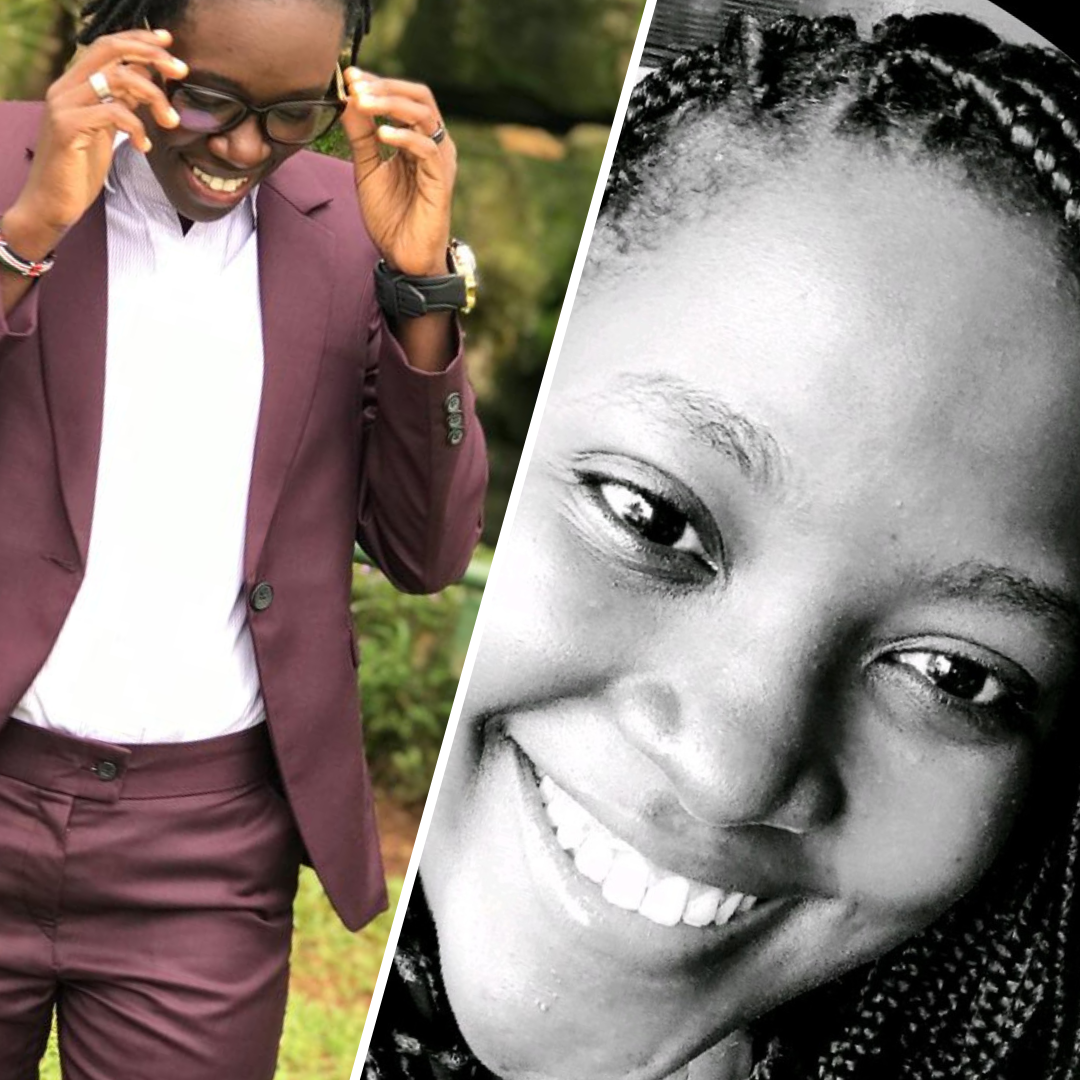In personality, Immaculate Nabwire and Daphne Nakabugo could not be more different. Where the former is loud, if free-spirited, and mischievous, the latter is quiet, reticent, and predominantly solitary. Together though, they are the quiet champions behind DefendDefenders’ digital skilling programs, equipping (women) human rights defenders with critically transformative – and sometimes, life-saving digital tools and skills.
“You’ll be surprised how many people out there, including educated ones, lack even the basic skills in digital safety. And as technology gets more advanced, it is getting ever more lucrative for hackers and other malign actors, which means that the urgency of the need for digital security skills for everyone cannot be over-stated,” says Daphne.
Daphne Nakabugo Tweet
A data and tech-enthusiast, Daphne joined DefendDefenders in 2019, having trained as a software engineer and apprenticed as a private tech-preneur with Engero, a company she co-founded with her partner.
Nine years earlier, Immaculate had joined the same organisation as an Information Technology intern from St. Lawrence University. She quickly gelled in – providing general ICT maintenance support for DefendDefenders staff and human rights defenders in need, so efficiently that she was confirmed as full-time staff at the end of her internship.
Together, they are today fondly known as DefendDefenders’ “women in tech,” overseeing the organisation’s tech flagship programs – Safe Sisters and Ttaala. The former is a fellowship program specially tailored for WHRDs that skills and equips them to respond to digital security challenges they face in their work and daily life, while the latter seeks to enable HRDs and organisations to scale their work through the use of relevant digital tools and strategies.
Daphne and Immaculate are at the heart of both programs, and have over the years conducted tens of trainings, equipping WHRDs with life-saving skills to pushback against cyber threats and harassment and supporting organisations to optimize digital tools for greater efficiency and effectiveness in their work.
“So far, we have commissioned 10 groups of safe sisters, composed of over 50 members that have gone through our training,” says Immaculate.
Immaculate Nabwire Tweet
The programs’ beneficiaries are not limited to Uganda alone. Many of them have been drawn from other countries within the East and Horn of Africa and have gone on to replicate similar initiatives in their respective countries.
Lourdes Walusala is one such beneficiary. A radio producer at the Kenya Broadcasting Corporation, she was a victim and survivor of online gender-based violence when she learned of and signed up for DefendDefenders’ safe sisters’ fellowship. After the year-long fellowship, she collaborated with the Association of Media Women in Kenya (AMWIK) to conduct a digital security training for women journalists with the aim of equipping them with practical skills to enhance their online safety. In 2019, she produced a digital security fact sheet for AMWIK, which helps users to identify abusive behavior online and offers practical suggestions on how to confront it.
Lourdes’ story is similar to that of Zaituni Njovu from Tanzania. A 2017 Safe Sister alumni, she went on to co-found Zaina Foundation – a not-for-profit organisation whose mission is to empower women in Technology in Tanzania. She has since become a fully-fledged digital security trainer, using her foundation to raise awareness on digital security for Tanzania’s women journalists, and was at the forefront of monitoring internet shutdowns towards Tanzania’s 2020 presidential election.
“It is such testimonies that keep us going,” says Daphne, adding, “Knowing that someone feels safer out there as they go about their work because of your efforts, or that they’re replicating what they’ve learned in their communities to empower even more people is fulfilling.”
Daphne Nakabugo Tweet
The conversation on women in ICT could not have been better timed. This month, the world commemorated the annual International Women’s Day 2023, with a call for worldwide action to eliminate the digital gender gap and to put in place systems that incentivize more women into tech spaces. Supported by Daphne and Immaculate, DefendDefenders curated a similar online campaign to #EndTheDigitalGenderGap. Immaculate says we can do more to make this global aspiration a reality:
“A lot still needs to be done. Part of the problem we have to confront is the stereotype that ICT is essentially a man’s field. We need to challenge this by covering women-in-tech champions more, so that young girls can grow up knowing that they too can be leaders in tech. For those already out there, we need to collectively commit to making it safe for them to express themselves without the fear of cyber harassment. It can be done,” Immaculate says.
Immaculate Nabwire Tweet

